Most people are only familiar with Android phones from Google and iOS from Apple. However, you might wonder, are there any other types of phones – say Linux phones?
Before diving deeper, there are a few terminologies that we need to understand.
- What exactly is Linux?
- The Android Operating System
- The Apple iOS
Table of Contents
What Exactly is Linux?
When somebody is running an operating system like Ubuntu, Debian, Fedora, Kali Linux, and many others on their laptop, most users will say they are using Linux.
This argument raises one key question – is Linux an operating system?
The simple answer is NO! Linux is a kernel and not an OS.
It is a middleware that sits between the user applications and the hardware. The developers of operating systems like Ubuntu, Fedora, etc., took the Linux Kernel and built some software on top of it to develop a Linux distribution.
To make things simple, think of the Linux kernel as a powerful engine that can be fitted on a saloon car, motorcycle, lorry, train, or jet. The body of the machinery might look different, but they are using the same type of engine.
The Android Operating System
The Google Android operating system is based on the Android Open Source Project (AOSP), based on the Linux Kernel.
Even though AOSP is free and open-source, you probably know that you don’t have much control over your Android phone.
Phone manufacturers have tweaked the Android OS and added their custom code and applications, making it illegal to try any tweaking.
The Apple iOS
iOS has a pretty interesting twist. iOS is based on NeXTSTEP, which was also based on Berkeley Unix, commonly referred to as BSD. Unfortunately, Unix was proprietary, and the license cost thousands of dollars. That was why Linux Torvalds developed Linux and made it free and open-source. The Apple iOS is completely closed-source.
What are Linux Phones, and Do They Exist?
From the above section, we have discussed that the Android OS is based on the Linux kernel while the Apple iOS is based on the Berkeley Unix. You now might be wondering, what are Linux phones?
Android phones and iPhones run closed-source operating systems even though it is based on the Linux kernel. And there are plenty of them, and you just have to find them.
Few Tips Before Buying a Linux Phone
Since you are switching to a different operating system, there are a few tips you need to know before you buy a Linux phone.
- Even though this statement is open to debate, you cannot use a Linux phone as your daily driver, especially if you are used to the Google and Apple applications. I found them much more suited for developers and tech enthusiasts who want to try a different type of phone.
- You won’t have access to the most popular apps present on Android or iPhones. These include Instagram, Facebook, and Google Photos, as some operating systems don’t support them.
- If you want to get much out of any Linux phone, a solid understanding of terminal commands would be great.
- They come with exciting security features, with some phones having a physical kill switch for the microphone and camera.
Let’s dive in and look at some of the best Linux phones available with that in mind.
Best Linux Phones
Here are our top picks for the best Linux phones you can get.
We have listed them in random order, and therefore, the first phone on the list doesn’t mean it’s necessarily the best. Please check out their features before deciding which to buy.
1. PinePhone – Pine64
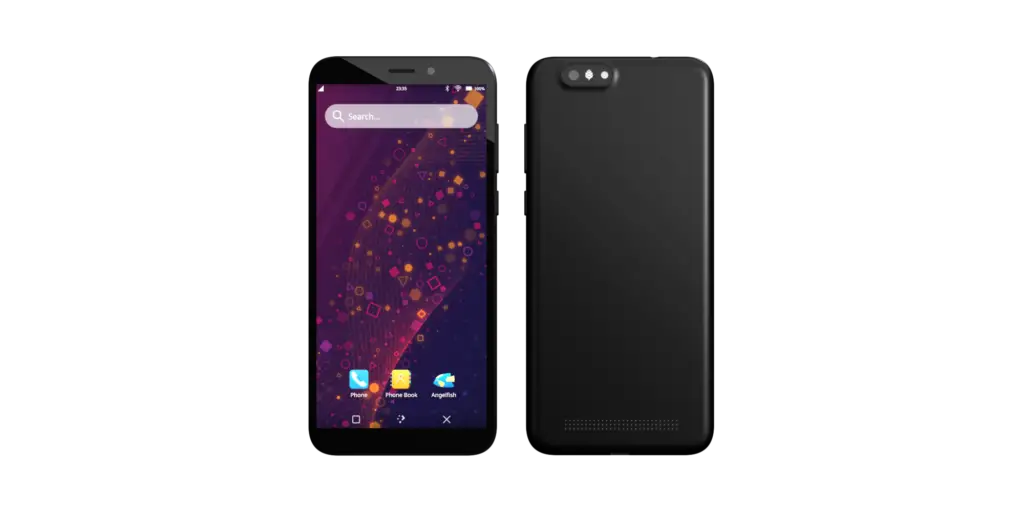
One of the most popular Linux phones is the PinePhone, developed by Pine64. It allows you to install several Linux phone operating systems, including UBports, Sailfish OS, Manjaro, etc.
The PinePhone has a hawk eye when it comes to security and privacy. It has five physical kill switches at the back that you can use to manually disable the Microphone, Bluetooth, Wi-Fi, Camera, and LTE modem.
This phone also has an eye on extensibility. It features six pogo pins that you can use to hook other devices, including a keyboard, thermal cam, wireless charging case, and much more. It’s also easy to repair with plenty of replaceable hardware that you can get at the PineStore.
It also supports a USB hub that allows you to connect it to an external monitor. Therefore, you can use it for a Desktop computer setup.
Key specifications
- Display: 5.99 inches, 1440×720 resolutions, 18:9 ratio.
- RAM: 2 or 3 GB LPDDR3
- Supported OS: It supports many Linux phone operating systems. They include Ubuntu Touch, PostMarketOS, Manjaro, Mobian, etc.
- Supported Graphical Interface: Lomiri, Phish, Plasma mobile, etc.
- Storage: 16 or 32 GB eMMC Flash storage
- Front camera: 2MP
- Back camera: 5MP
- Removable storage: Micro SD Card (bootable)
- Sound: 3.5 mm Jack, Microphone, and Loudspeaker
- Battery: 2800 mAh and 300 mAh (removable)
- Connectivity: WiFi, Bluetooth, USB-C, USB 2.0, and Display port
- SIM: 1 Nano SIM card slot
- Fingerprint sensor: No. But you can add a fingerprint module using the Pogo pins.
2. Librem 5 – Purism
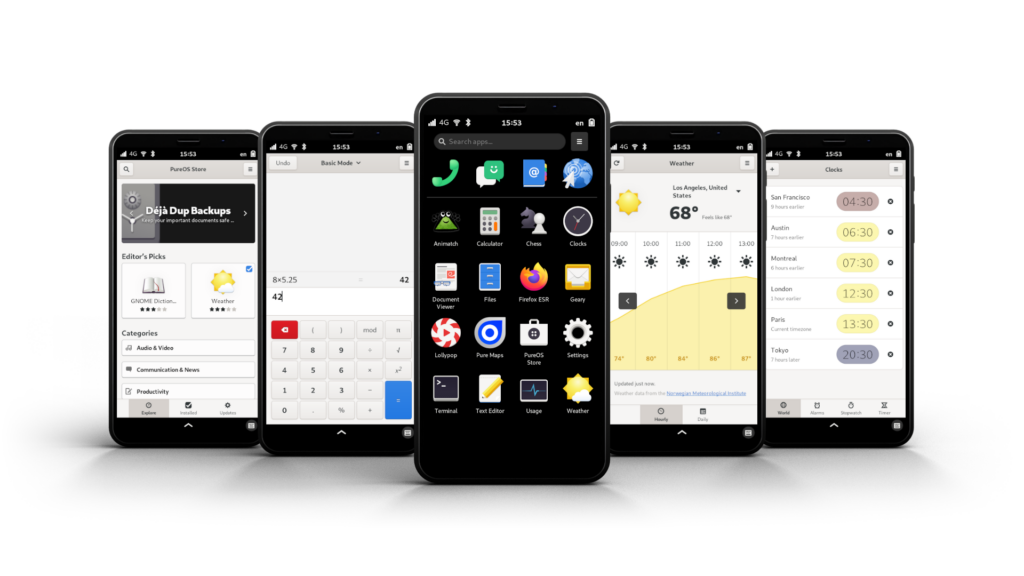
Librem 5 is another fantastic Linux phone manufactured by Purism. It runs PureOS, a Linux phone operating system developed by Purism. As of 2022, it was the only smartphone recommended by the Free Software Foundation (FSF). That is an organization that started in 1985 to support the availability of free software.
Like most Librem products, the Librem 5 phone focuses on freedom, security, and privacy. Some of the cool features you can find in this gadget include.
- Physical kill switches to turn off the camera, microphone, etc
- Easily replaceable parts
The 5 Librem 5 refers to the screen size, not the release version.
Key Specifications
- CPU: NXP i.MX 8M Quad-core Cortex-A53, 64bit ARM @max 1.5GHz
- Display: 5.7 inches, 720×1440
- RAM: 3 GB DRAM
- Supported OS: PureOS and Phosh
- Storage: 32 GB eMMC
- Front camera: 8.0 MP
- Back camera: 13.25 MP with LED flash
- Removable storage: Micro SD Card (2 TB maximum)
- Battery: 4,500 mAh (replaceable)
- Connectivity: WiFi, Bluetooth, USB-C, USB 2.0, and Display port
- SIM: 1 Nano SIM card slot
- Fingerprint sensor: No
3. Pro 1 X – F(x)tec
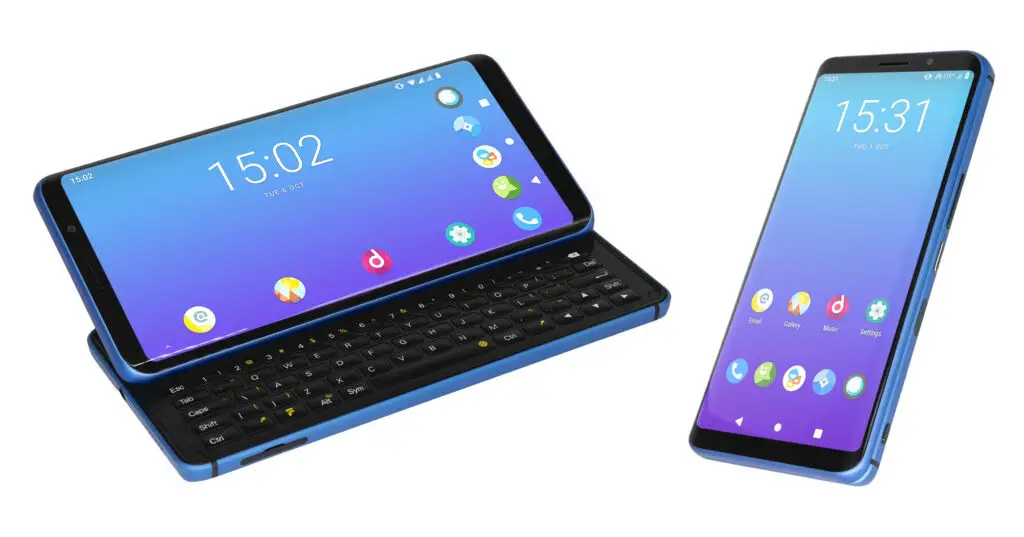
Another Linux phone top on the list is the Pro 1 X – F(x)tec developed by F(x)tec company in London. One unique feature of this phone is the slide-out keyboard present. Therefore, you can opt to use the phone as a full touch screen or slide out the keyboard to use it in landscape mode.
Key Specifications
- CPU: Qualcomm Snapdragon 662
- Display: 5.99 inches, 2160×1080 AMOLED with curved edges
- RAM: 6 GB or 8 GB LPDDR4
- Supported OS: It features an unlocked bootloader, making it possible to install many operating systems, including Android, Ubuntu Touch, SailFish, and Lineage.
- Storage: 128 GB eMMC
- Front camera: 8.0 MP
- Back camera: 12 MP with LED flash
- Removable storage: Micro SD Card (2 TB maximum)
- Battery: 3200 mAh (quick charge)
- Connectivity: WiFi, Bluetooth, USB-C, USB 2.0, and HDMI
- Sim: Dual Nano SIM
- Fingerprint sensor: Yes
4. Volla Phone
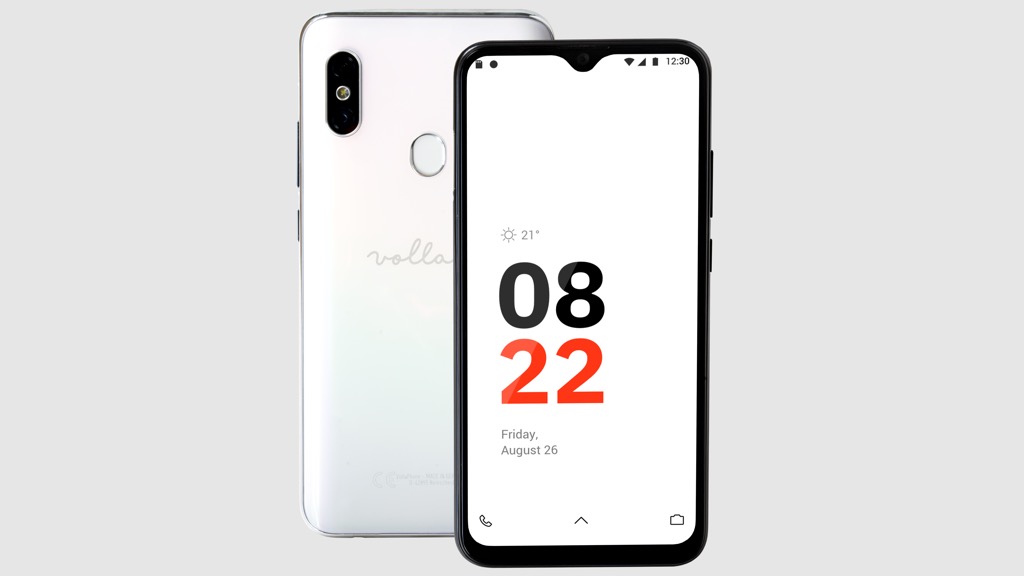
Volla is another Linux phone developed to give users freedom in the digital space through simplicity and security. It ships with the Volla OS, which features a minimalistic design and unique features not present on most Linux phones’ OS. Users have the option to select between Light, Dark, and Transparent themes.
The Volla OS is Google-free. Therefore, it doesn’t ship with any Google apps, as most are known to intrude on users’ personal space and privacy. All the essential applications, including Phone calls and contacts apps, are open-source.
Key Specifications
- CPU: MediaTek Helio P23, MT6763V, Octa-core ARM Cortex-A53 (4x 2.0 GHz + 4x 1.5 GHz cores)
- Display: 6.3 inches, 2340×1080
- GPU: ARM Mali-G71 MP2 @ 770 MHz, 2 cores
- RAM: 4 GB
- Supported OS: VollaOS and Ubuntu Touch
- Storage: 64 GB eMMC
- Front camera: 16 MP
- Back camera: 16 MP
- Removable storage: Micro SD Card (512 GB maximum)
- Battery: 4700 mAh Lithium-Polymer. It supports wireless charging.
- Connectivity: WiFi, Bluetooth, 3.5 mm jack
- Sim: 2 Nano SIM cards/ 1 nano SIM card and external memory card
- Fingerprint sensor: Yes
5. Fairphone
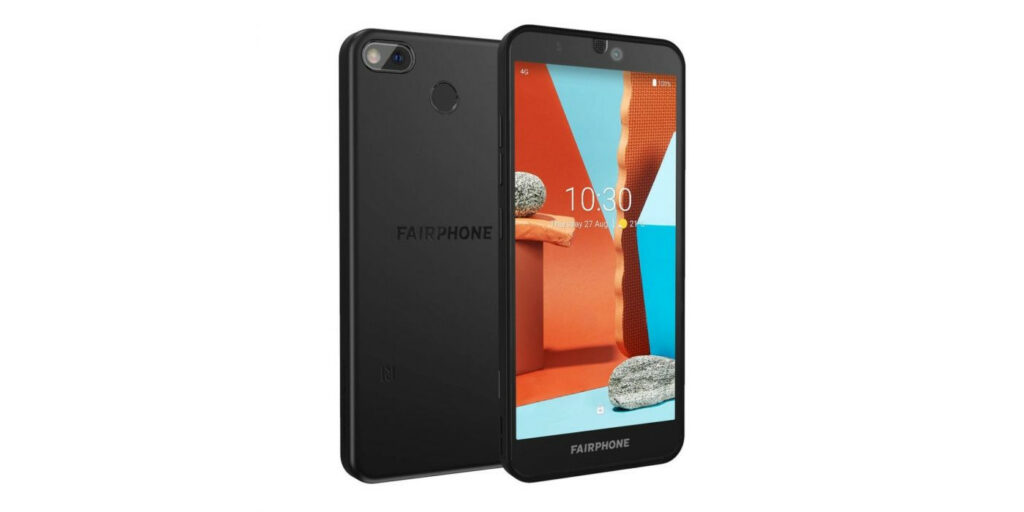
Closing the list is the Fairphone. First, you need to understand that this phone is not necessarily a Linux phone. However, it ships with a modified version of Android (FairPhone OS) and is compatible with most postmarketOS.
postmarketOS is a free and open-source operating system designed for smartphones, and it is based on the Alpine Linux distribution.
Most of the hardware in these phones is easily replaceable, and all you need is a screwdriver. That includes the display, battery, and other items.
Key Specifications
- CPU: Octa-core Kryo 570 GHz cores)
- Display: 6.3 inches, 2340×1080
- GPU: Adreno 619
- RAM: 6 GB/ 8 GB
- Sound: Loudspeaker. It doesn’t have the 3.5 mm jack port
- Supported OS: Fairphone OS and postmarketOS
- Storage: 64 GB eMMC
- Front camera: 48 MP
- Back camera: 25 MP
- Removable storage: Micro SD Card (512 GB maximum)
- Battery: 3905 mAh Lithium-Ion (Removable, fast charging).
- Connectivity: WiFi, Bluetooth, 3.5 mm jack
- Sim: Dual Nano SIM cards
- Fingerprint sensor: Yes (side-mounted)
- Other sensors: accelerometer, gyro, proximity, compass
The Pros of Using Linux Phones
- Security: These phones are security-oriented and boast of utmost privacy. Some of the phones listed above have physical kill switches for modules like cameras, microphones, wifi, etc.
- OS updates: OS updates can be pretty picky with other mobile phones like Android. Some devices can run Android 9.0, while others are stuck on Android 4.0. With most Linux phones, updates are constant and don’t depend on the hardware.
- Compatibility with Linux Desktops: Most Linux phones allow you to connect a USB dock and add a monitor, keyboard, and mouse, giving you a full-featured Linux Desktop computer.
- Ability to customize your OS
- Dual-booting: With most Linux phones, you are not limited to one single closed-source operating system. You can decide to install two OS at a time and select which to use on boot.
The Cons of Linux Phones
- Few applications: Most developers are still focusing on Android and iOS. Therefore, you have many apps you are accustomed to, like Facebook or Netflix.
- Lack of hardware: Even though we have many Linux phones OS, only a few manufacturers have released mobile phones that support these operating systems.
- Doubts over the future of Linux phones: Many big tech companies have tried venturing into the phone market but with no success (including Microsoft with the Windows phone). Therefore, not many people expect that there will be “the year of Linux phones.” Most people are not even aware Linux phones exist.
- Usability: Even though most Linux phones come with an easy-to-use graphical interface, you need to be well-versed with Linux systems to get the most out of it.
Alternatives to Linux Phones
If you don’t have access to a Linux phone but still want to get a feel of using a Linux phone OS, below are our top alternatives.
Android phones that support postmarketOS
- Xiaomi Pocophone F1
- Xiaomi Redmi 2
- Xiaomi Mi Note 2
- OnePlus GT
- OnePlus 6
Android phones that support Ubuntu Touch OS
- Planet Computers Cosmo Communicator
- Google Pixel 3a/3a XL
- Sony Xperia X (F5121 & F5122)
- Google Nexus 5
- OnePlus One
Linux Phone Distributions
Most Linux phones ship with their company OS but include support for other distributions. Some of these distributions are a FOSS alternative to Android and not exactly Linux phone distributions.
Some of the Linux phone distributions you can find include;
- postmarketOS (Based on Alpine Linux)
- UBports (Ubuntu Touch)
- Mobian (Debian for mobiles)
- Tizen (supported by The Linux Foundation)
- KaiOS (based on Firefox OS)
- Maemo (Debian)
- ExpidusOS (Void Linux)
- PureOS
- Plasma Mobile
- Nemo Mobile
- NixOS
Conclusion
This post has given you a detailed guide on Linux phones and some of the best you can buy today.
Unfortunately, most of these phones are not readily available, and you need to place an order on the company website.
If you are a tech enthusiast, you should try one of these gadgets. If you are looking for a place to get applications for your Linux phone, check out the Linmobapps website.
Are you already using a Linux phone? If yes, please share your experience in the comments below.
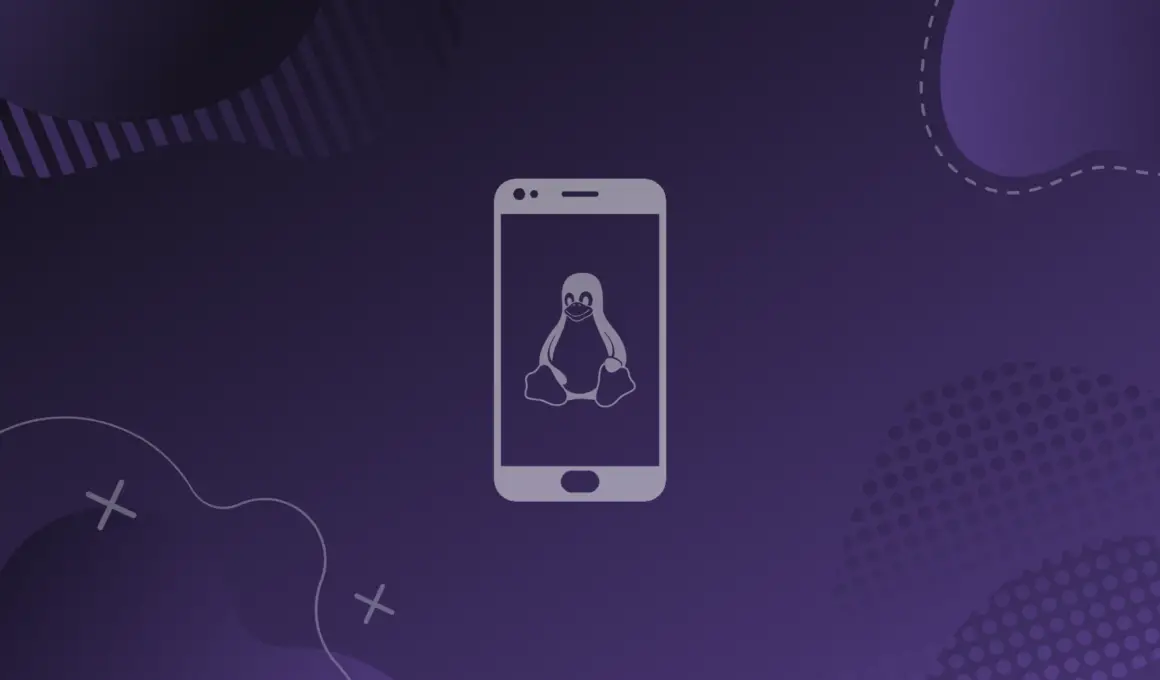
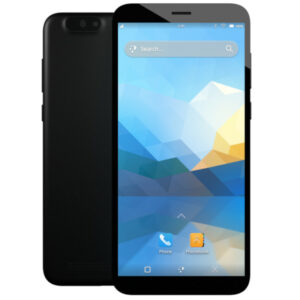
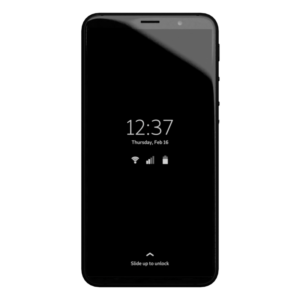
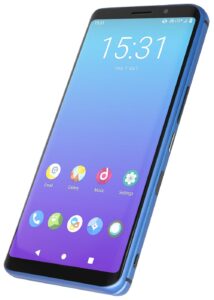
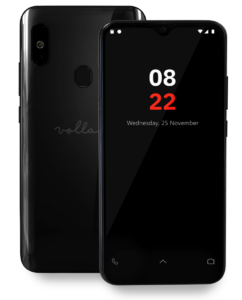
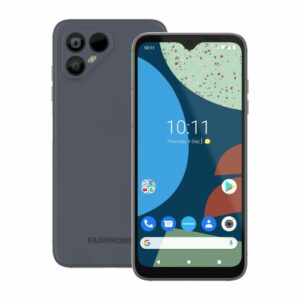






Had an awesome Linux phone in 2009, the Nokia N900 with the Meego OS (Linux). Other than being too heavy it was awesome-exciting as it was expected with Nokia’s reputation to beat both Google Android and Apple. They made one other, I think the N9 and just like all nightmares, Nokia then decided to replace the Linux Meego OS with Windows OS! What were they thinking?! I still have it but it locked and the code I believed was right wouldn’t work. Wish I could find someone who could get in. I have had all kinds of Nokia dumb phones, Android and Apple phones and I still miss that OS. I’m hoping another hardware manufacturer that runs on a Linux OS will rival the quality of Finland’s Nokia (and not be made in China).
well, if you liked the n900 stick with sailfish os, that’s still based on maemo/ meego und runs on different phones. There are ports to some of the ones mentioned above.
The N900 !
I still have mine. I have to replace it now, since 3G coverage is being phased out in the USA. I wish I could find a N900 version with 5G.
I’m curios to know if the author has any experience with the Murena One smartphone with the “/e/OS” operating system? I haven’t been able to find any reviews on the product other than from their website, https://murena.com/. It looks promising, but no products have been shipped. It’s been on back-order for several months.
no experience, but at the bottom of the page (a pop-up asks for which country you are in. I’m not sure what differences are) https://murena.com/?wcpbc-manual-country=US which has reviews from The Verge, XDA (reprints The Verge review), ZDnet… and these were from May, 2022, so I’m not sure why you “haven’t been able” to find reviews.. They mention /e/OS is de-googlefied, but can run Android apps, Lifewire mentions it is fork of Android, just stripped of Google-connected apps and services. I’m also a little skeptical of your claim that the products haven’t shipped, maybe just not in your country?
I’m surprised pixel 3a is not even mentioned. While it’s not sold with Linux pre installed, it works way better than pinephone. Give it a try with Ubuntu and you won’t regret it.
The Pixel 3a (and 3aXL) are mentioned under “Android phones that support Ubuntu Touch OS“. What the article doesn’t mention is Planet Computer’s AstoSlide, a 5G device that’s a step up from the Communicator.
No desire to feed money to the google machine. I’m here because I want to dump google and apple due to their overwhelming desire to ignore my right to privacy while still benefiting from today’s technology.
My Noka is a Kaos linux phone. A 2760 flip.
I saw this new Linux phone made by SageTea, a well-known Canadian IT firm.
What drew my attention to SageTea was its strong support for open-source software. The XFone’s support for open-source software is one of its distinguishing characteristics. Users can inspect the source code, make improvements, and even improve the software.
Furthermore, XFone includes a number of privacy-enhancing features. It includes encrypted file systems, for example, which add an extra layer of data security. Linux has a plethora of privacy-focused technologies and tools, including as VPNs and encrypted messaging programs, that are easily accessible to users, allowing them to protect their online conversations.
If you appreciate the notion of a Linux phone that prioritizes privacy and open-source software, you should look into SageTea’s XFone.
I came across this awesome new Linux phone made by SageTea, a top-notch IT company based in Canada.
What really caught my attention is that SageTea is super passionate about open-source software. They’ve built a phone called XFone that embraces open-source software as one of its standout features. This means that users can actually dig into the source code, make tweaks, and even enhance the software themselves.
In addition, XFone is loaded with privacy-enhancing tools, including encrypted file systems that provide an additional layer of protection for data. A wide variety of privacy-focused tools and apps, such as VPNs and encrypted messaging apps, are readily available for Linux, allowing users to protect their online communications.
XFone has an open store for loading additional apps for customizing your XFone. Anbox is software that lets your XFone run all your loved Android apps. They were able to provide a container that runs like an Android phone on your XFone.
So, if you’re into the idea of a Linux phone that puts privacy and open-source software first, you should check XFone from SageTea.